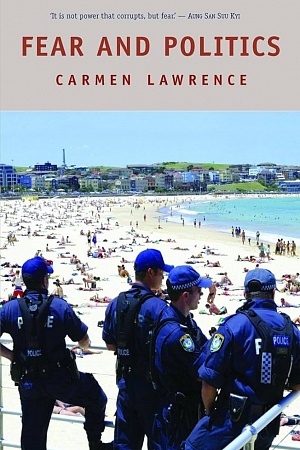Subimperial Power: Australia in the international arena
Melbourne University Press, $24.99 pb, 175 pp
Playing deputy sheriff
When the Howard government committed Australian troops to fight in Afghanistan in 2001, and later in Iraq, it did so without recourse to parliament or the courts. Not only can the prime minister sanction the despatch of the nation’s forces to fight overseas, he or she has no need of parliamentary approval. Indeed, there is no requirement to debate such a proposal before a decision is made. Australia has no equivalent of the US War Powers Resolution of 1973, which limits the president’s freedom to make war.
While reform of this extraordinary power is possible – the High Court has noted that parliament has the power to ‘limit or impose conditions on the exercise of the Executive power’ – no government has seen fit to pursue this option. Australian governments of all persuasions have preferred to retain the power to deploy forces as they see fit and to keep parliament out of the gravest decision that any democracy can take – to risk the lives of its service personnel. Other lesser powers, Norway and the Netherlands among them, foolishly attached to the conventions of democracy, insist on parliamentary authorisation for the despatch of forces. Some have interpreted Australia’s retention of executive authority and the dynamic role in world affairs that it has enabled as a mark of strength. The former foreign minister, Alexander Downer, insisted in his sternest Widow Twankey voice that Australia was not ‘middling’ or ‘average’, like those democratic lightweights Norway or the Netherlands, but ‘a considerable power and a significant country’ – as evidenced by its prominent role in world affairs where it faithfully supports the foreign policy adventures of its principal ally, the United States.
Continue reading for only $10 per month. Subscribe and gain full access to Australian Book Review. Already a subscriber? Sign in. If you need assistance, feel free to contact us.











Leave a comment
If you are an ABR subscriber, you will need to sign in to post a comment.
If you have forgotten your sign in details, or if you receive an error message when trying to submit your comment, please email your comment (and the name of the article to which it relates) to ABR Comments. We will review your comment and, subject to approval, we will post it under your name.
Please note that all comments must be approved by ABR and comply with our Terms & Conditions.